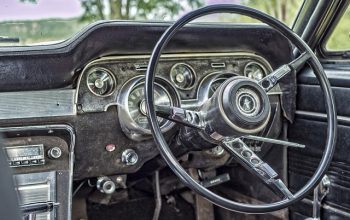Navigating the salvage car market requires a clear understanding of vehicle titles and the associated risks and considerations. A 'salvage title' indicates a vehicle has been deemed a total loss by insurance companies due to significant damage from accidents, natural disasters, or floods, and is sold at salvage car auctions for reduced prices. These vehicles may be repaired and given a 'rebuilt title,' signifying they are again roadworthy but could have underlying issues that a professional mechanic's inspection can reveal. It's critical to discern between 'totaled cars' that might be beyond economical repair and those categorized as 'repairable vehicles' with damage that can be effectively addressed. 'Wrecked Vehicles' denote severe accident damage, while 'flood-damaged vehicles' have undergone substantial water damage. Each category affects a vehicle's insurance coverage, resale value, and legality differently. Smart buyers familiarize themselves with these terms to navigate salvage car auctions effectively, ensuring their purchase aligns with their financial goals and objectives. A strategic approach, coupled with due diligence and knowledge of state regulations, is key to finding a cost-effective, reliable vehicle in the salvage market.
Considering the cost-effectiveness of salvage vehicles for transportation or investment purposes, this article aims to guide potential buyers through the nuances of the salvage car market. These vehicles, often mislabeled as damaged cars or write-offs, are available at salvage car auctions at significantly reduced prices due to their history. The allure of these bargains, however, comes with a caveat: a careful approach is necessary when navigating the unique challenges of purchasing a vehicle branded with a Salvage Title, Rebuilt Title, or deemed Totaled or Wrecked. This article will delve into the process of assessing the condition and potential of such vehicles, including Flood-Damaged Vehicles, and provide insights into the legalities and regulations surrounding title branding. Additionally, it will outline the steps required to restore a salvage vehicle to roadworthy status and offer tips on maximizing its value upon completion. Whether you’re looking to invest or seeking an affordable mode of transportation, understanding the intricacies of the salvage car market is key to making an informed decision.
- Navigating the Salvage Car Market: Understanding Your Options and Risks
- – Identifying Salvage Title, Rebuilt Title, Totaled Car, and Wrecked Vehicle Designations
- – The Appeal of Damaged Cars at Salvage Car Auctions
Navigating the Salvage Car Market: Understanding Your Options and Risks
When venturing into the salvage car market, it’s crucial to familiarize oneself with the terminologies and the intricacies involved. A ‘salvage title’ denotes a vehicle that has been declared a total loss by an insurance company due to damage often resulting from accidents, natural disasters, or floods. These vehicles are then offered at salvage car auctions, providing an opportunity for buyers to acquire them at significantly reduced prices. However, potential buyers must approach these opportunities with caution. A ‘rebuilt title’ indicates that a previously salvaged vehicle has been repaired and restored to operational condition. While this can be a pathway to obtaining a viable mode of transportation, it also introduces risks that must be carefully assessed. The vehicle’s history can affect its safety, reliability, and market value. It’s essential to obtain a thorough inspection by a certified mechanic before making a purchase. This inspection will help ensure that the repairs were performed correctly and that there are no underlying issues that could become costly surprises down the line. Additionally, understanding the legal implications of owning a salvage or rebuilt title vehicle is paramount. Each state has its regulations regarding such vehicles, which can influence insurance coverage and resale potential. Buyers must also be vigilant about the condition of the vehicle, distinguishing between ‘totaled cars’ that are repairable and those that are better off not repaired due to the extent of damage, which could range from minor cosmetic issues to catastrophic frame or engine failure. Navigating the salvage car market requires a blend of due diligence, knowledge of state regulations, and a clear understanding of the vehicle’s condition and history. By carefully considering these factors, buyers can make informed decisions and potentially find a great deal on a ‘repairable vehicle’ that offers a solid return on investment.
– Identifying Salvage Title, Rebuilt Title, Totaled Car, and Wrecked Vehicle Designations
When venturing into the market for a salvage vehicle, it’s crucial to understand the various designations that distinguish between different categories of damaged cars. A ‘Salvage Title’ is assigned to vehicles that have been declared a total loss by an insurance company due to damage that often exceeds a certain percentage of the car’s value. These titles are applied after the insurer has deemed the repair costs too high for the vehicle’s value, or if the vehicle has been stolen and recovered but heavily damaged. On the other hand, a ‘Rebuilt Title’ is issued to vehicles that were previously salvaged but have since been repaired and brought back to a functional state. These vehicles must undergo a rigorous inspection process to ensure they meet safety and operational standards before being reclassified.
In the case of ‘Totaled Cars,’ this term specifically refers to vehicles that insurance companies deem uneconomical to repair, often due to high repair costs relative to the car’s value. These vehicles are typically sold at salvage car auctions alongside other damaged cars, which may include ‘Flood-Damaged Vehicles’ that have suffered substantial water damage. It’s important for potential buyers to identify whether a vehicle has a ‘Wrecked Vehicle’ designation, indicating it was involved in an accident and is considered beyond repair or too costly to fix. ‘Repairable Vehicles,’ on the other hand, are those that have sustained damage which, while significant, may be rectified at a lower cost compared to the vehicle’s value. These vehicles also end up at salvage car auctions and offer a potential path to ownership for budget-conscious buyers looking to invest in a damaged car with the intention of restoration. Before making a purchase, it is imperative to research and understand the implications of each designation, as they can affect not only the insurance coverage but also the resale value and legal status of the vehicle post-repair. Understanding these distinctions is key to navigating salvage car auctions successfully and ensuring that your investment in a damaged car aligns with your goals and budget.
– The Appeal of Damaged Cars at Salvage Car Auctions
When exploring the market for a reliable vehicle at an economical price, salvage car auctions present a compelling opportunity. These auctions are repositories for ‘totaled cars’, which are vehicles that have been involved in accidents or have sustained other significant damages to the point of being deemed a total loss by insurance companies. Despite this history, many of these vehicles carry what is known as a salvage title. A salvage title indicates that the vehicle has been branded due to its damaged condition, and while it may seem daunting, it also signifies that the car holds potential for a new lease on life. For the savvy buyer, acquiring a vehicle with a salvage title can be a financially sound decision, as these ‘repairable vehicles’ often come at fractions of their original value. The key to successfully navigating a salvage car auction lies in understanding the distinction between a salvage title and a rebuilt title. A rebuilt title is assigned to a vehicle that has been thoroughly repaired and restored to operational condition after being deemed a total loss, and has passed necessary inspections to earn this designation. For those not deterred by a past of ‘flood-damaged vehicles’ or other issues, the process of purchasing, restoring, and rebranding a salvage car can be both rewarding and cost-effective. With due diligence in inspecting the vehicle and ensuring compliance with state laws regarding salvage and rebuilt titles, buyers can find themselves the proud owner of a vehicle that retains significant value after reconstruction. The potential to turn a salvage title vehicle into a reliable mode of transportation is a draw for many who are not daunted by the challenge. With careful selection, a commitment to proper repairs, and an understanding of the legal framework governing these transactions, buyers can capitalize on the bargain offered by salvage car auctions and reap the benefits of their investment in a ‘repairable vehicle’.
When venturing into the salvage car market, prospective buyers are met with a blend of challenges and opportunities. Salvage title and rebuilt title vehicles, often sourced from salvage car auctions, present a chance to acquire a damaged car at a significantly reduced cost. These repairable vehicles, including those deemed totaled or wrecked, hold the promise of regaining their value, offering a potential high return on investment for the diligent and skilled restorer. It is imperative to conduct a thorough salvage car inspection, understand the implications of title branding, and adhere to salvage vehicle laws to navigate this niche market successfully. With careful planning and commitment to the rebuild process, a salvage vehicle can be transformed into a reliable mode of transportation or a prized possession. For those with an eye for value and the expertise to handle such projects, the world of salvage cars is a realm rich with potential rewards.



